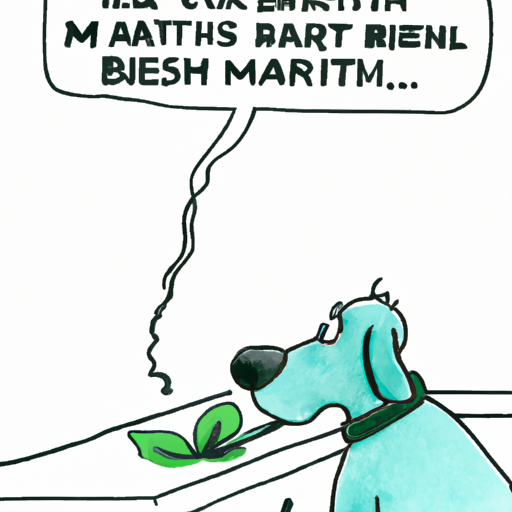Understanding the Root of the Problem
First things first, you need to understand that your dog’s bad breath might be more than just a nuisance. It could be a sign of an underlying health issue. Dental problems are a common cause, but other health conditions can also lead to bad breath. So, before you start looking for solutions, it’s crucial to rule out any potential health risks. A quick visit to the vet can help you do this.
Implementing a Regular Dental Hygiene Routine
Once you’ve ruled out health issues, the next step is to implement a regular dental hygiene routine for your dog. This might include:
- Regular brushing of your dog’s teeth
- Using dental treats and toys
- Regular check-ups with your vet
Remember, the aim here is consistency. Just like with your own dental hygiene, a regular routine is key to maintaining good oral health.
Using Dog-Friendly Breath Fresheners
There are many dog-friendly products on the market designed to help freshen your dog’s breath. Some options include:
- Dog-friendly breath mints
- Water additives
- Dental chews
But remember, these are not a replacement for a good dental hygiene routine. They are supplements to it.
Adjusting Your Dog’s Diet
Sometimes, the cause of bad breath is as simple as an unsuitable diet. A diet change might be all it takes to freshen your dog’s breath.
| Current Diet | Suggested Change |
|---|---|
| High in carbohydrates | High in protein |
| Processed food | Fresh food |
| High in sugar | Low in sugar |
Remember, any changes to your dog’s diet should be made gradually, and under the guidance of a vet.
Regular Check-Ups with Your Vet
Ultimately, the best way to ensure your dog’s breath stays fresh is through regular check-ups with your vet. They can provide professional cleaning and spot any potential dental issues early.
FAQs
Q1: How often should I brush my dog’s teeth?
A1: Ideally, you should brush your dog’s teeth daily. But a minimum of three times a week is acceptable.
Q2: Are there any specific foods I can give my dog to improve their breath?
A2: Fresh, unprocessed foods are generally best. Some people also find that adding fresh parsley to their dog’s food helps.
Q3: Are dental chews effective?
A3: Yes, they can help remove plaque and tartar. But they are not a substitute for brushing.
Q4: What causes bad breath in dogs?
A4: Dental problems are the most common cause, but other health issues can also lead to bad breath.
Q5: Can bad breath in dogs be a sign of something serious?
A5: Yes, it can be a sign of serious health issues, such as diabetes or kidney disease. If your dog’s bad breath persists, it’s important to consult with a vet.



